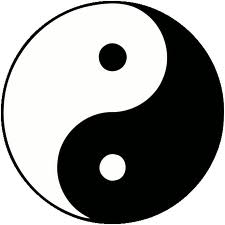Can Religion Be Defined?
|
In the past decades many sociologists, theologians, anthropologists and others have formulated views on what exactly religion is. Here are some of their statements.
Religion is... • what the individual does with his own solitariness. • belief in spiritual beings. • a system of thought and action shaped by a group which gives the individual a frame of orientation and an object of devotion • the human enterprise by which a sacred cosmos is established ... religion is the audacious attempt to conceive of the entire universe as being humanly significant. • a meaning system ... a set of ultimate values, a series of answers (usually expressed in symbols) to the most basic and fundamental questions a human person can ask. • purely a person-self and neighbour-centred life without a structure of a church and hierarchical composition. • the way we cope with life and death, good and evil, comedy and tragedy, love and hatred, injustice and surprise, ... • a system of symbols which acts to establish powerful, persuasive and long-lasting moods and motivations in men by formulating conceptions of a general order of existence, and clothing these conceptions with such and aura of factuality that the moods and motivations seem uniquely realistic. • the impinging of god on mans existence and consciousness. The initiative comes from God who reveals Himself to man. • about man's response to God in faith. This is evident in man's quest for wholeness and selfhood. • expression through ritual, ceremony and liturgy. • community in action • solely a relationship with a Higher Being. Generally, a religion is regarded as a set of beliefs and practices, usually involving acknowledgment of a divine or higher being or power, by which people order the conduct of their lives both practically and in a moral sense.
This method of defining religion in terms of a mixture of beliefs, practices, and a Supernatural Being giving form and meaning to existence was used by the High Court of Australia in 1983. http://www.abs.gov.au/ausstats/[email protected]/0/775012EF0058A77DCA25697E00184BDC?opendocument |
ACTIVITIES
For your GLOSSARY
| ||||||
Why Study Religion?
"Study of the world's religions will lead to an understanding of religious diversity.
Understanding will lead to inter-religious dialogue.
Dialogue will lead to peace among religions…
Peace among religions will lead to peace among nations."
Hans Kung
Understanding will lead to inter-religious dialogue.
Dialogue will lead to peace among religions…
Peace among religions will lead to peace among nations."
Hans Kung
A System of Meaning and Belief
A system of meaning or a belief system or a religious tradition is a collection of teachings and practices which influence people's understanding of life and the world, shaping their attitudes and the ways in which they live. Most belief systems are based on the idea of a god or gods, but some (e.g. Theravada Buddhism and Communism) describe life without requiring a person to accept ideas of God.
VCE GROUPING of RELIGIOUS TRADITIONS
• Spiritual and religious ideas in Prehistory (associated with, for example, Lascaux, Gobekli Tepe, Stonehenge, Jericho)
• Religious traditions of ancient civilisations (for example, Sumerian, Mesopotamian, Babylonian, Egyptian,
Canaanite, Roman, Greek)
• Asian religious and philosophical traditions (for example, Buddhism, Hinduism, Sikhism, Jainism, Taoism,
Confucianism, Shintoism)
• Abrahamic religions (for example, Judaism, Christianity and Islam).
• Spiritual and religious ideas in Prehistory (associated with, for example, Lascaux, Gobekli Tepe, Stonehenge, Jericho)
• Religious traditions of ancient civilisations (for example, Sumerian, Mesopotamian, Babylonian, Egyptian,
Canaanite, Roman, Greek)
• Asian religious and philosophical traditions (for example, Buddhism, Hinduism, Sikhism, Jainism, Taoism,
Confucianism, Shintoism)
• Abrahamic religions (for example, Judaism, Christianity and Islam).

